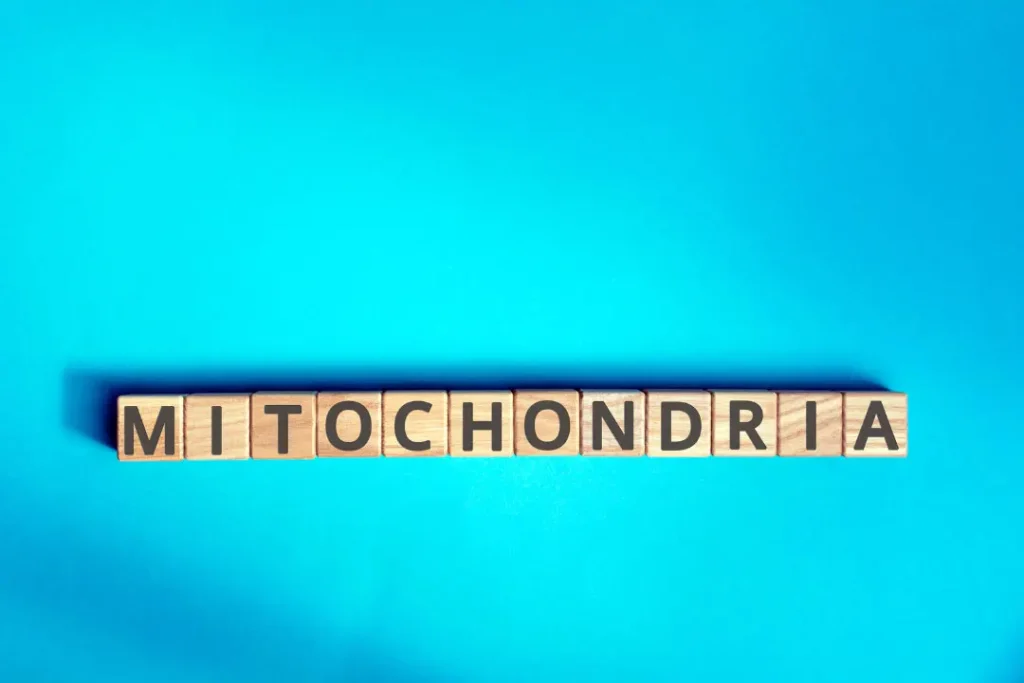There has been a surge of interest in the role of nutritional supplements in boosting overall health and well-being in recent years. Coenzyme Q-10 (CoQ10) is one supplement that has gained popularity as part of this surge. CoQ10 is a naturally occurring molecule in the body that participates in a variety of physiological activities. The purpose of this article is to provide a thorough explanation of CoQ10, including its nature, recommended dosage, side effects, probable substance interactions, and responsible applications.
You May Also Like:
The Best Mushroom Supplements for Memory: 5 Top Brands Reviewed
Finding the Best Supplements for Brain Fog After COVID: 5 Top Brands Reviewed
Coenzyme Q-10: Benefits, Dosage, Side Effects, Drug Interactions, and Other Important Information is an original (NootropicsPlanet) article.
Nature of Coenzyme Q-10
CoQ10, also known as ubiquinone, is a fat-soluble molecule that is found in nearly every cell of the human body. CoQ10 is essential for cellular energy production and is a component of the electron transport chain in mitochondria. The mitochondria are commonly referred to as the “powerhouses” of the cell since they generate energy in the form of adenosine triphosphate (ATP). CoQ10 contributes to this process by transporting electrons across different protein complexes in the electron transport chain.
CoQ10’s chemical structure has a benzoquinone ring with a hydrophobic side chain comprising of ten isoprenyl units. This structure contributes directly to CoQ10’s capacity to shuttle electrons between different enzyme complexes, facilitating ATP production and energy generation.

Health Benefits of Coenzyme Q-10
CoQ10 is essential for cellular function and has been linked to a variety of health benefits. One of its primary activities is as a powerful antioxidant. CoQ10 aids in the neutralization of potentially damaging free radicals, which are byproducts of regular metabolism that can cause cellular damage. CoQ10, as an antioxidant, protects your cells from oxidative stress and may aid in the prevention of chronic diseases, such as heart disease, neurological disorders, and some malignancies.
It aids in the protection of cells and tissues from oxidative damage produced by dangerous free radicals. CoQ10, as an antioxidant, can contribute electrons to neutralize free radicals, minimizing cellular damage. This antioxidant activity is especially crucial in organs that demand a lot of energy, including the heart and brain, because these organs are more vulnerable to oxidative stress. CoQ10 also interacts with other antioxidants, such as vitamin E, improving their ability to resist oxidative stress.
Furthermore, relevant scientists have thoroughly researched the cardiovascular effects of CoQ10. It aids in the maintenance of the heart muscle’s energy demands and promotes healthy cardiac function. CoQ10 supplementation has been found to ease symptoms in people with heart failure, CoQ10 also helps lower blood pressure, improve exercise performance, and promotes overall cardiovascular health.
In addition to its cardiovascular advantages, CoQ10 has shown promise for neuroprotection. It is abundant in brain tissue and plays an important role in maintaining mitochondrial activity, shielding neurons from oxidative damage, and promoting overall brain health. CoQ10 supplementation may help reduce the progression of neurodegenerative disorders like Parkinson’s and Alzheimer’s, according to research.

Chemistry of Coenzyme Q-10
Coenzyme Q-10 (CoQ10) is a one-of-a-kind substance with an intricate molecular structure. It belongs to the quinone family and has a benzoquinone ring structure. As aforementioned, this ring structure comes with a hydrophobic side chain of 10 isoprenyl units. The isoprenyl side chain is particularly important since it regulates CoQ10 lipid solubility and membrane location.
CoQ10 is found in two main forms: ubiquinone and ubiquinol. The oxidized form is ubiquinone, whereas the reduced form is ubiquinol. The interconversion of ubiquinone and ubiquinol is required for CoQ10’s physiological actions. CoQ10 goes through a redox cycle in the body, switching between oxidized and reduced forms, functioning as an electron carrier in cellular respiration and energy production.

Physiological Mechanisms of Action Coenzyme Q-10
CoQ10’s major role is to receive electrons from NADH (nicotinamide adenine dinucleotide) and FADH2 (flavin adenine dinucleotide), which are created in the mitochondria during the breakdown of carbohydrates and fatty acids. These electrons are subsequently transmitted via the electron transport chain, which includes many protein complexes, such as NADH dehydrogenase, the cytochrome b-c1 complex, cytochrome c reductase, and cytochrome c oxidase.
CoQ10 switches between its oxidized (ubiquinone) and reduced (ubiquinol) forms throughout this electron transfer process. Energy is released as electrons are shuttled, and this energy is used to pump protons through the mitochondrial inner membrane. This creates an electrochemical gradient, which eventually drives ATP synthesis via the enzyme ATP synthase.
Furthermore, CoQ10 has been linked to gene expression, cell signaling pathway control, and cell membrane stabilization.
Coenzyme Q-10: Benefits, Dosage, Side Effects, Drug Interactions, and Other Important Information is the (NootropicsPlanet) report.
Optimal Dosage of Coenzyme Q-10
Because of differences in individual demands, health circumstances, and supplementation type, determining the correct CoQ10 dosage for you can be difficult.
A normal CoQ10 dosage range for general health maintenance is 100 to 200 mg per day. However, greater dosages may be suggested under the supervision of your healthcare expert for specific health issues or therapeutic purposes. Because CoQ10 is a fat-soluble molecule, absorption is improved when taken with a meal containing dietary fat.

Side Effects of Coenzyme Q-10
CoQ10 is typically well accepted and deemed safe for the majority of people. The most common and minor side effects include gastrointestinal problems, such as nausea, diarrhea, and stomach distress. Individuals with pre-existing medical disorders or those on specific drugs, on the other hand, should proceed with caution and see a healthcare professional before beginning CoQ10 supplementation.

Potential Substance Interactions
Certain drugs, particularly those that reduce blood pressure or influence blood coagulation, may interact with CoQ10. CoQ10 supplementation, for example, may boost the effects of blood-thinning drugs, such as warfarin, raising your risk of excessive or difficult to stop bleeding. Furthermore, CoQ10 may impair the efficacy of certain chemotherapy medicines. To avoid unwanted interactions and guarantee optimal treatment outcomes, it is critical you communicate to healthcare providers about your CoQ10 supplementation.
Responsible Uses of Coenzyme Q-10
When considering the usage of CoQ10 as a dietary supplement, it is critical to proceed with caution. Consultation with a healthcare practitioner is advised, especially for people who have pre-existing health concerns or are using drugs. A healthcare provider can assess an individual’s needs, propose suitable dosages, monitor potential interactions, and ensure that CoQ10 is used safely and responsibly.
An essential component of cellular energy production and antioxidant defense mechanisms is coenzyme Q-10, or CoQ10. It is a naturally occurring substance. Cardiovascular support, neuroprotection, and antioxidant properties are some of its possible health advantages. Despite CoQ10 being generally well-tolerated and safe, people should use caution and speak with a doctor before beginning a supplementation regimen, especially if they use medication or have underlying medical issues. People can utilize CoQ10 to enhance their overall health and well-being by using it properly and taking advantage of its potential advantages.
Coenzyme Q-10:
Conclusion
Coenzyme Q-10 is an abundant and naturally occurring vitamin already present in the human body. Should you choose to integrate its presence into your dietary regimen, it is possible for you to experience health benefits in several key areas. CoQ10’s unique chemical makeup and prevalence within the body contribute directly to its ability to provide substantial improvements to your overall health. Consider taking advantage of a growing body of research asserting CoQ10’s potential.
References:
- “Effects of adaptogens on the central nervous system and the molecular mechanisms associated with their stress-protective activity.” Retrieved from: https://www.mdpi.com/1424-8247/3/1/188
- “Coenzyme Q10.” Retrieved from: https://www.mayoclinic.org/drugs-supplements-coenzyme-q10/art-20362602
- “Coenzyme Q10.” Retrieved from: https://www.sciencedirect.com/topics/medicine-and-dentistry/coenzyme-q10
Important Note: The information contained in this article (Coenzyme Q-10: Benefits, Dosage, Side Effects, Drug Interactions, and Other Important Information) is for general informational purposes only, and should not be construed as health or medical advice, nor is it intended to diagnose, prevent, treat, or cure any disease or health condition. Before embarking on any diet, fitness regimen, or program of nutritional supplementation, it is advisable to consult your healthcare professional in order to determine its safety and probable efficacy in terms of your individual state of health.
Regarding Nutritional Supplements Or Other Non-Prescription Health Products: If any nutritional supplements or other non-prescription health products are mentioned in the foregoing article, any claims or statements made about them have not been evaluated by the U.S. Food and Drug Administration, and such nutritional supplements or other health products are not intended to diagnose, treat, cure, or prevent any disease.


